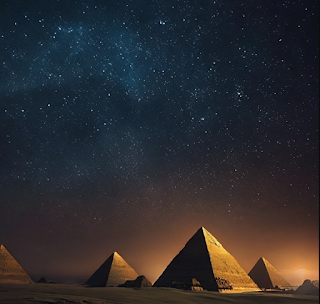Search Blog
Hit enter to search or ESC to close
Trending Now
Parshas Vaera - Bo - Were the Jews Affected by the Plagues?
- Get link
- Other Apps
Parshas Shemos/Vaera - The Birth of a New Religion and the Age of Miracles
- Get link
- Other Apps
Showing posts from December, 2020
Posts
Parsha Miketz - Don't Follow Your Dreams
Parshas Miketz begins with a dream. Previously, Vayetze had begun with a dream and Vayeshev had begun and ended with dreams. But there's a substantive difference between the earlier dreams, those of Yaakov, and the later dreams involving Yosef. In Yaakov's dreams, G-d or an angel had explained their meaning or purpose to the patriarch, whereas Yosef' had to explain his own dreams and those of others. As the embryonic Jewish people moved closer to the point of exile, the connection with G-d appeared to grow tenuous. Until Moshe, Yaakov would be the last Jew whom the Torah describes G-d speaking to. In the Egyptian exile, the Jews were no longer able to hear G-d. Yosef's dreams, filled with abstract symbols, but without words, were the beginning of that exile in more ways than one. The dreams would help bring on a physical exile, but they were also the symbols of a spiritual exile from the close connection of direct conversations and clear messages that Avraham, Yitzchak,
- Get link
- Other Apps
The Chanukah of Chanukah - Why We Only Celebrate the Dedication of a Defiled Temple
What is Chanukah specifically? Many discussions about Chanukah begin with the artificial distinction between the military victory and the miracle of the oil that burned for 8 days. This distinction is wholly artificial because the war had been fought by a priestly family over the desecration of the sacred service and concluded with the purification of the Temple. The military campaign and the reclamation of the Temple are the means and the end. The miracle of the oil was the achievement of the goal for which the battle had been fought. To separate the two as if they belonged to two different world is like separating the blowing of the shofar at the Western Wall from the Six Day War. Both were miracles, but one was the moral climax of the miracle. The miracle of the menorah was, in the old military slogan, "why we fight". And yet Chanukah, the name of the holiday, references neither the battle nor, explicitly, the menorah. Chanukah simply means dedication. The first dedication
- Get link
- Other Apps






